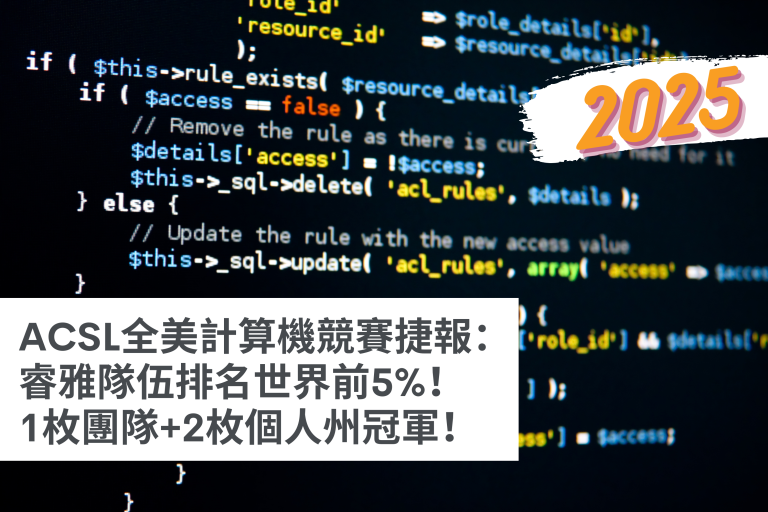
競賽訊息
9-12年級學生
參賽資格
美國參賽者:20 美元
國際(非美國)參賽者:30 美元
參賽費用
2026年1月5日美東時間晚上11:59
提交截止日期
2026年3月底
得獎資訊公佈
📌 注意:睿雅學院並非本次競賽的主辦單位。有關競賽的官方規則、截止日期及最新信息,請直接查閱主辦方發布的內容。睿雅學院僅提供競賽資訊,供學生參考。 睿雅學院是一個針對全球學生的線上教育平台,提供各類競賽準備課程。
競賽細節
1. 介紹
哈佛本科經濟學會(HUEA)與《哈佛大學經濟評論》(Harvard College Economics Review)共同舉辦旗艦賽事-哈佛國際經濟學論文競賽(HIEEC)。 HIEEC為學生提供了一個展示經濟理論寫作能力和深刻理解的平台,幫助參賽者提升學術和職業技能,展現其經濟學知識儲備。
2. 哈佛國際經濟論文競賽主題
Environment: As climate change intensifies, governments and corporations are turning to carbon offset markets and nature-based solutions (like reforestation or carbon capture) to meet emission targets. Yet critics argue these mechanisms allow wealthy nations and firms to “buy their way out” of real reductions, while creating new inequities for developing economies.
環境:隨著氣候變遷加劇,各國政府和企業紛紛轉向碳抵銷市場和基於自然的解決方案(例如植樹造林或碳捕獲)來實現減排目標。然而,批評人士認為,這些機制使得富裕國家和企業能夠「花錢逃避」真正的減排責任,同時為發展中經濟體帶來新的不平等。
Prompt: Evaluate the economic and environmental effectiveness of carbon offset markets as a tool for reducing global emissions. How might these markets influence international trade, investment, and development? Should countries prioritize direct emission reductions over offset schemes, or can both coexist effectively? Propose economic policies that could enhance the credibility and fairness of global carbon offset systems.
題目: 評估碳補償市場作為減少全球排放工具的經濟和環境有效性。這些市場如何影響國際貿易、投資與發展?各國是否應該優先考慮直接減排,而非依賴碳補償機制,還是兩者能有效共存?提出可以增強全球碳補償體系公信力和公平性的經濟政策。
Inequality: The rapid rise of generative AI and automation has sparked fears of a “productivity boom without wage growth,” where capital owners capture most of the benefits. Some economists propose implementing a universal basic income (UBI) or data dividend to redistribute the value created by automation.
不平等:人工智慧和自動化技術的快速發展引發了人們對「生產力繁榮但薪資成長乏力」的擔憂,即資本所有者攫取了大部分收益。一些經濟學家建議實施全民基本收入(UBI)或資料紅利,以重新分配自動化創造的價值。
Prompt: Analyze the potential of universal basic income or data dividends as policy responses to technological inequality. What economic trade-offs might arise from decoupling income from labor, and how could these affect long-term growth, innovation, and social cohesion? Consider how different income groups and countries at varying levels of development might respond to such policies.
題目: 分析普遍基本收入或數據紅利作為應對技術不平等的政策反應的潛力。將收入與勞動脫鉤可能帶來哪些經濟權衡?這些權衡如何影響長期成長、創新和社會凝聚力?考慮到不同收入群體和處於不同發展水平的國家,如何看待此類政策的回應?
Workforce & Education: Hybrid and remote work, accelerated by global digitalization, has reshaped labor markets and urban economies. As geographic proximity becomes less critical, cities face shifting housing demand, changing tax bases, and new infrastructure needs.
勞動力與教育: 混合辦公與遠距工作在全球數位化的推動下重塑了勞動市場與城市經濟。隨著地理距離不再是決定性因素,城市面臨著住房需求變化、稅基變化和基礎設施需求的新挑戰。
Prompt: Examine the long-term economic implications of a global shift toward remote and hybrid work. How might this transformation affect productivity, urban inequality, and educational priorities? What role should governments and institutions play in balancing the benefits of flexibility with the risks of labor market fragmentation?
題目: 檢視全球轉型為遠距與混合工作的長期經濟影響。這項轉變如何影響生產力、城市不平等和教育優先事項?政府和機構應在彈性的好處與勞動市場碎片化的風險之間扮演何種角色?
Crypto/Finance: Amid rising debt levels and global inflation uncertainty, some governments have explored issuing tokenized sovereign bonds or blockchain-based currencies to improve transparency and accessibility. Yet such innovations raise questions about security, regulation, and the role of private intermediaries.
加密貨幣/金融: 在債務水準上升和全球通膨不確定性的背景下,一些政府探索發行代幣化的主權債券或基於區塊鏈的貨幣,以改善透明度和可獲取性。然而,這些創新也引發了關於安全性、監管和私人中介角色的問題。
Prompt: Assess the economic and financial stability implications of tokenized government bonds and blockchain-based public finance systems. Could such technologies democratize investment and improve fiscal transparency, or do they introduce new systemic risks? How should central banks and regulators adapt to a financial system increasingly built on distributed ledger technology?
題目: 評估代幣化政府債券和基於區塊鏈的公共金融系統對經濟和金融穩定性的影響。這樣的技術是否能實現投資民主化並改善財政透明度,還是引進了新的系統性風險?中央銀行和監理機關應如何適應一個越來越依賴分散式帳本技術的金融體系?
3. 獎項設置
- 前三名文章:經作者許可將在官網發表。
- 最終入圍名單將在網路上公佈,並由經濟學家進行評審。
- 「高度推薦」名單:獲得此榮譽的作者名單將在線上發布。
提交須知
1. 比賽規則
字數限制:嚴格限制在1500詞以內。 超過限制的任何單詞都將被截斷。 字數限制不包括參考文獻、註腳、標題、頁首和頁尾。
引用格式:須使用芝加哥格式或APA格式標註參考文獻;抄襲行為將導致參賽資格取消。
提交格式:僅接受PDF格式提交;其他格式將被拒收,且因提交錯誤而退還。
原始要求:參賽論文必須為原創作品,不得同時參加其他比賽或已發表。
回饋政策:比賽不提供個人回饋。
2. 截止與數量限制
本屆比賽最多接收600篇論文,超過截止時間或投稿上限的論文將不被接受。







